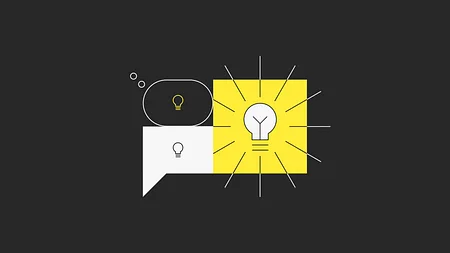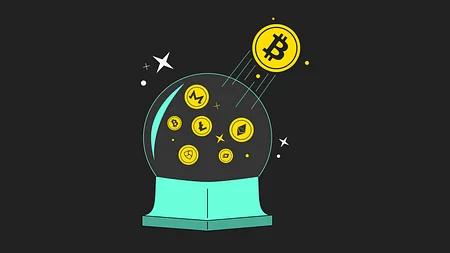Why have regulators reacted so strongly to Libra by Facebook?

It didn't take long. Within hours of Libra being announced the global regulatory system had plenty of opinions on what it meant and how it needed to be governed.
The Governor of the Bank of England, the Chair of the Federal Reserve, the Senate Banking Committee and France’s finance minister all weighed in.
Perhaps the strongest comments came from the Chair of the Senate Banking Committee who has said Facebook should halt developments on Libra entirely, until Congress has had the opportunity to review developments and has since sent a cease and desist letter to Mark Zuckerberg. France’s Finance Minister Bruno Le Maire warned against Facebook’s crypto becoming a “sovereign currency.” I mean DAYUM, that’s a reaction.
Why? Having reservations about a new entrant makes sense but asking a firm to stop development? So, why do they hate this so much?
- If it went huge, maybe Libra would threaten central banks role in the economy
- Facebook already has a pretty bad rep with governments
- Crypto already has a bad rep with governments
I’m going to break this down further and examine each of those points.
Libra’s threat to central bank control of money
Libra as designed would hold a “reserve” of existing currencies and assets (e.g. GBP, EUR, USD) and use this to help their Libra Coin remain stable for its users. As designed, we could buy Libra coins from cryptocurrency exchanges (e.g. Coinbase) and then use WhatsApp, Instagram (or a 3rd party app) to send money back and forth.
During the last financial crisis (and until very recently) most central banks around the world “printed money” and reduced interest rates. By printing USD or GBP, the central banks added to the money supply. Without getting deep into the mechanics of quantitative easing, with more money in the economy, banks had more to lend, and businesses could keep their doors open. This, coupled to a historically low interest rate environment means money is cheaper than ever.
In a world where Libra has become more dominant, would central banks lose this?
Well if you look at the responses from the Bank of England or the Federal Reserve, they’re not particularly worried about Libra being ready for the mass market any time soon. However, Mark Carney, the Governor of the Bank of England, did make some interesting remarks during his Mansion House speech:
"Libra, if it achieves its ambitions, would be systemically important. As such it would have to meet the highest standards of prudential regulation and consumer protection. In addition, authorities will need to consider carefully the implications of Libra for monetary and financial stability. Our citizens deserve no less.”
There’s also a really interesting question about what would happen if central banks had oversight of the reserve… (think about that for a few seconds).
Perhaps the bigger issue is where Crypto and “fake news” cross over.
The consortium model, irrespective of who, precisely, is involved may actually make it harder for regulators
Facebook’s bad rep with Governments
Part of the reason regulators are pushing so hard to make sure crypto exchanges and wallets follow financial services rules, is the reality that cryptocurrency is still used for illegal activity online.
The dark net markets that sell drugs aren’t as much of an issue as things like ransomware attacks (where your computer is infected with a virus that can only be removed by paying a ransom) or far worse, the potential for state sponsored hacking and espionage.
Facebook is especially topical in this area following the 2016 US election and the Brexit vote in the United Kingdom in which the social media giant is being scrutinised for not preventing “fake” news stories or misleading news stories from potentially influencing the electorate.
Facebook has built an incredible engine for understanding what motivates the general public, what they like and dislike, who their friends etc. Facebook also happened to build incredibly sophisticated tools to target us with advertising.
If you’re an advertiser, this is brilliant because Facebook adverts are so damn effective. Facebook’s massive data set means I don’t have to buy millions of dollars of TV or radio advertising, but for 10% of the cost I can speak to a much smaller audience but an audience much more likely to buy.
Now imagine if you wanted to use this same advertising and data machine to advertise to voters? On the face of it this isn’t such a bad thing, we’ve had political advertising in most western economics for decades.
But now imagine you’re a state adversarial to the United Kingdom, Europe or the USA. You’d want to push for outcomes that destabilised the relationship between those allies, that weakened your enemies.
Facebook * Crypto = Shitstorm
Given crypto’s potentially significant role in state sponsored cyber warfare and global stability, and Facebook’s potentially massive impact influencing the electorate… Imagine you’re a politician and you woke up one day to the headline “Facebook to launch cryptocurrency”!
The politicians might not believe that Facebook’s Libra project itself is likely to go mainstream any time soon, but the potential for 2.3bn people on the planet to have access to cryptocurrencies more generally would no doubt send alarm bells ringing. If nothing else you’d increase access to cryptocurrencies and risk making the current situation with crypto’s use for illegal activity worse.
Authorities will need to consider carefully the implications of Libra for monetary and financial stability. Our citizens deserve no less.
Mark Carney, Governor of the Bank of England.
Facebook’s position in all of this
Facebook probably didn’t intend for it’s advertising system to be misused the way it has. What’s more, it can’t be easy trying to police and manage billions of posts and advertisements per day on a global scale. What all of that does show, is that relying on advertising as a revenue model meant hoarding data and building sophisticated message targeting tools. Those tools could be exploited to weaken democracy.
As such the likelihood is that, if anything Libra is an attempt to find a new way to monetise the amount of users Facebook has, by getting into payments and lending. There are hundreds of millions of facebook users who do not have a bank account. If you could give them the tools to pay each other, perhaps you’d also have the tools to lend to them?
However, as I outlined previously, what’s interesting about Libra is that it’s not Facebook by themselves. There’s another 20+ companies and an effort to get more than 100 in the foundation. Now, we know from reports that some of the consortium members haven’t actually pledged a great deal, at least not yet.
But the consortium model, irrespective of who, precisely, is involved may actually make it harder for regulators. With Facebook at least there is a throat to choke. With Libra, how do you manage all of the organisations involved, from VC firms and payments networks, through to telecoms and non-profits?
It has been mentioned many times in the press that Facebook has met with global regulators and central banks to keep them up to speed with Libra. It’s not like they’re ducking those meetings or working entirely behind closed doors.
But when an organisation that’s already in the crosshairs of governments that hasn’t gotten full control of it’s “fake news problem” launches something that leaves a lot of unanswered questions in it’s own right, well...you can see why some of the more conservative elements of the global financial system would react in this way.
Will Libra ever be regulated?
Which leads to the obvious end state. Libra becomes a fully regulated digital currency, whatever form that regulation might take!
I really wouldn’t bet against it. It will likely take longer than most people (especially Facebook) imagine, but something from the world of crypto is destined to play the role of money for the internet, money that moves at the speed of an email. How we control that, if we control that, and what will the banks do when it happens, all remain to be seen.
Facebook has committed to Libra in a big way, and is supported by investors like a16z who have a frankly astonishing track record in their big bets.
My sense is it’s not a question of when, but if Libra becomes a thing, and how much will it look like it does today?
In my next blog I'll be examine what Libra means for banks. In the meantime if you want to know more, we've discussed the topic in great depth over on Blockchain Insider Episodes 101 and 102



